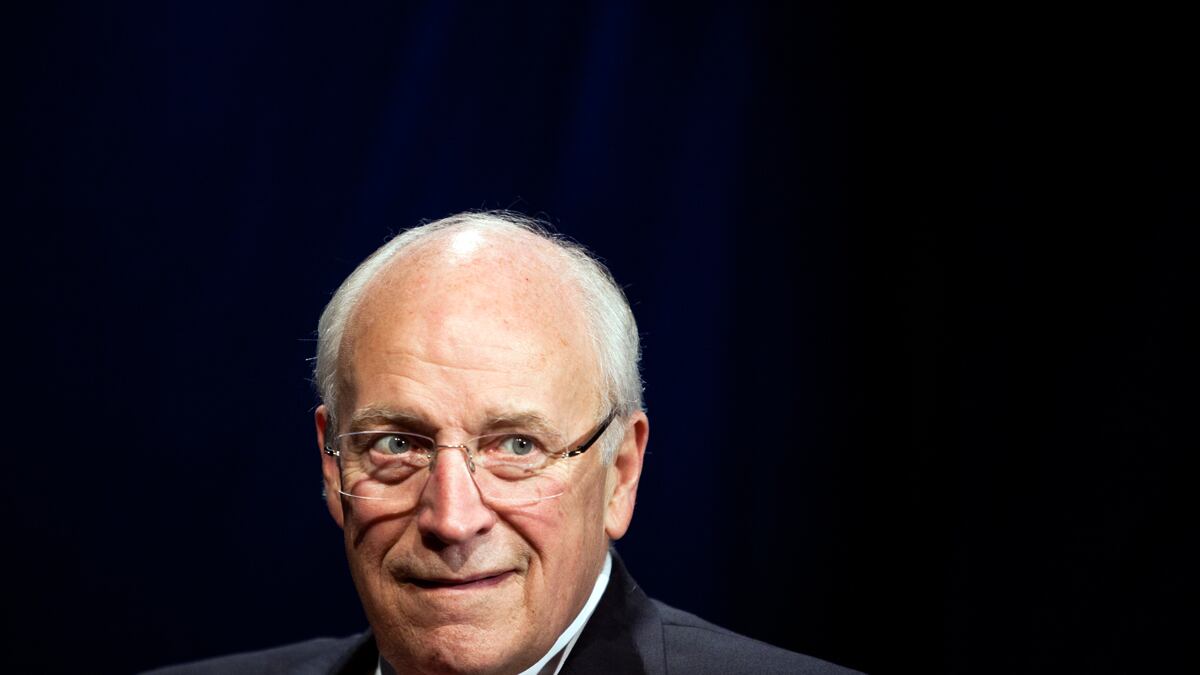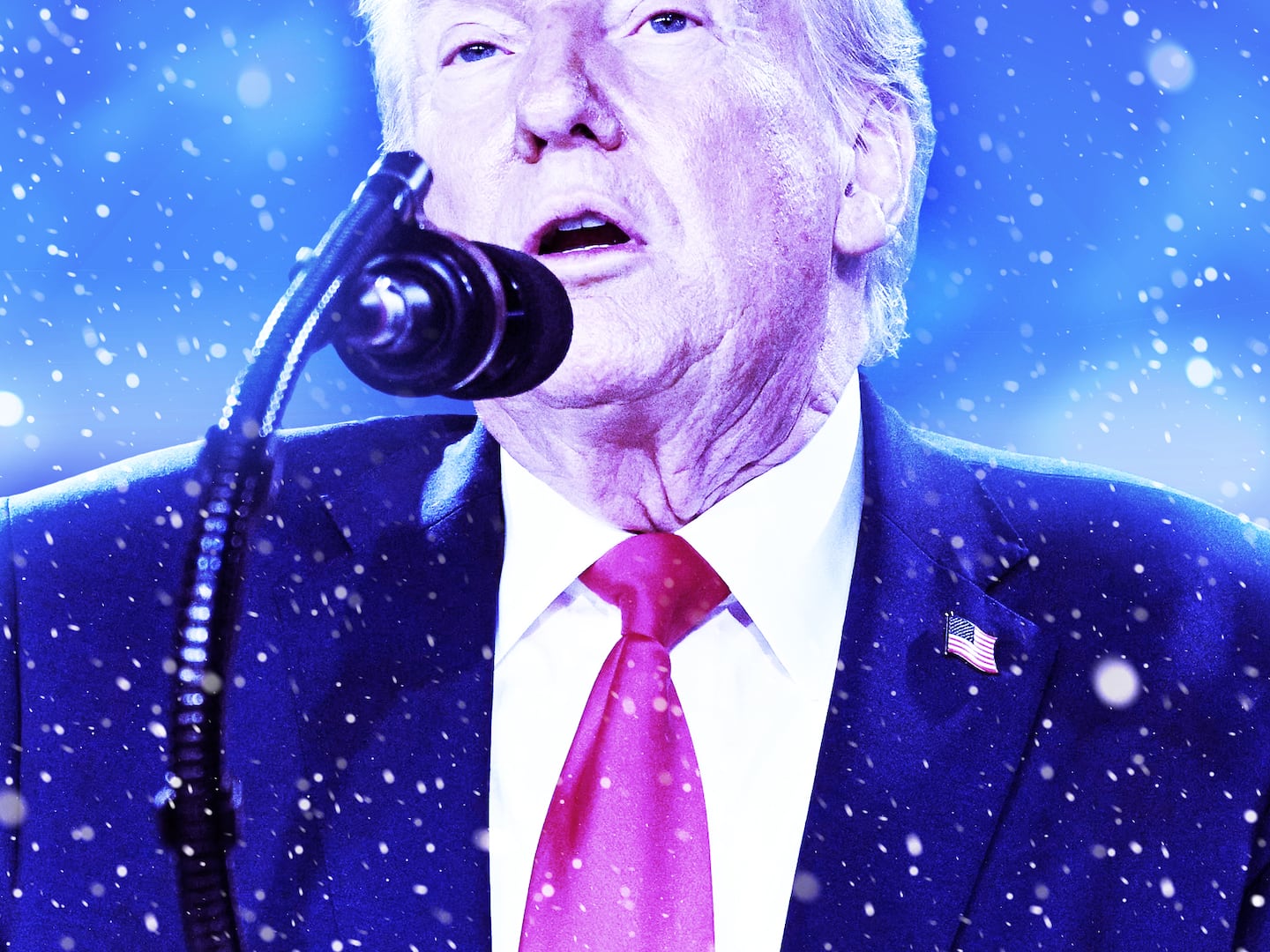Dick Cheney’s troublesome heart history is as lengthy as the list of reasons why he’s known as a callous curmudgeon. The man has endured an astounding five heart attacks and numerous heart surgeries—all but forcing one to question the connection between his rotten mass of muscle and what many have written off as, well, a rotten heart.
Last weekend, however, after two years on a waiting list, the former vice president underwent a heart transplant, thanks to an anonymous donor, begging the question: could a new anatomical heart lead to a figurative change of heart? Could Tricky Dick suddenly start championing Obamacare and joining the Occupy Wall Street picket lines?
Not surprisingly, most physicians say: probably not. “It’s an interesting theory, but it’s one that we have not proven,” Tracy Stevens, a transplant cardiologist at Saint Luke’s Mid America Heart Institute in Kansas City, Mo., told The Daily Beast.
And yet, some transplant recipients swear that a literal change of heart precipitates a metaphorical one. Claire Sylvia, who received a heart and lung transplant at Yale New Haven Hospital in 1988, chronicled her dramatic transformation in her memoir, A Change of Heart.
After leaving the hospital after her surgery, the formerly health-conscious dancer and choreographer claimed to experience intense cravings for Kentucky Fried Chicken and beer, foods she’d previously disliked. Sylvia reported becoming more aggressive and impulsive—traits associated with her donor, an 18-year-old boy killed in a car accident, who, oddly, was said to have chicken nuggets in his jacket at the time of the crash. (Sylvia’s story was later turned into a made-for-TV movie starring Jane Seymour.)
Sylvia’s case was included in a 2002 study published in the Journal of Near-Death Studies on heart-transplant patients whose character traits, preferences, and memories became uncannily similar to that of their donors’ after surgery.

These and other patients’ anecdotal evidence form the basis of a theory known as “energy cardiology,” which posits that information can be transmitted electromagnetically between the brain and the heart. There’s also the theory of cellular memory, which holds that because memory can be stored in individual cells throughout the body and not just the brain, it’s plausible that a heart recipient could be gifted with, say, a hankering for fried chicken.
Proponents of the latter can be found across the medical spectrum, from homeopathic practitioners and energy healers to world-renowned physicians like Deepak Chopra. Along with Candace Pert, a Ph.D. in cellular biology and biophysics who has done extensive research on how the emotions and the body are neurologically linked, Chopra has written extensively on how traumatic emotions are stored in “phantom memories” inside cells.
Yet the 2002 study cites only 10 transplants and mentions that, in other instances, changes in food preference and emotion were usually transitory and could be chalked up to medication. (First performed in 1967, heart transplants now tally about 5,000 worldwide every year; 2,000 are performed yearly in the U.S. More than 3,000 people are currently awaiting heart transplants in this country.)
These theories are undoubtedly boosted by society’s ingrained belief that the heart acts as a crystal ball of character. From the Tin Man’s hopelessly vacant chest in The Wizard of Oz to the “telltale heart” thumping against the floorboards in Edgar Allen Poe’s classic tale of murder and conscience, the organ has long served as literary and cinematic shorthand not only for characters’ capacity for love, but for their courage, warmth, wisdom, charity, humanity—or lack thereof. Whether or not you believe cupid’s arrow can alter the heart as deeply as a cardiologist’s scalpel, the organ has always been sutured to fit society’s metaphorical needs.
Skeptics cite many probable medical explanations for patients’ seemingly uncanny changes, including a sudden, more compassionate outlook on life. “How we present ourselves and behave when faced with very difficult medical problems is complex,” says Ashish Shah, a cardiothoracic surgeon and associate professor of surgery at John’s Hopkins Medical School in Baltimore, Md.
He’s transplanted the hearts of hardened criminals into sweet and kind individuals, and not a one has experienced a Freaky Friday–like transformation, he says. For patients who learn their donor’s identity, he believes they may subconsciously take certain traits to heart.
“I think we can simply explain [these cases] by knowing the clinical scenarios,” says Stevens. “Someone will say now they love Mexican food. My argument is that now they can eat it, because [before the transplant], they were so limited in their sodium consumption. Or they find they’re very emotional, and people tell them ‘you must’ve gotten a girlie heart.’”
Post-op sentimentality can often be chalked up to Prednisone, a common drug administered after a transplant that can make people feel like they’ve “got a hamster wheel going in their chest,” explains Stevens.
Profound differences in taste and personality can also be a result of a transplant patients‘ tremendous emotional journey. After all, they face their mortality in ways that few people can truly understand.
“I’m not the same person that I was, but I don’t know if that’s because of the heart or because of what I’ve been through,” says Susan Senk, a New York publicist who received a heart transplant in 2007 after being stricken with viral myocarditis, a disease that causes the body to attack the heart. In a relatively short period of time, she went from being an active woman in her 50s with a perfectly healthy heart to battling for her life until a donor saved her.
Senk, who doesn’t know her donor’s identity, hasn’t experienced any significant changes in preferences or personality besides buying more shoes and developing a craving for ice cream shortly after surgery, which quickly went away. Says Senk: “Things that are different? I’m a faster driver. What does that mean? I have no idea.”
Though donors and recipients remain anonymous from one another, either party can reach out via the organ procurement facility and initiate a meeting if both desire. And when donor families and recipients do meet, the impact can be more profound than the discovery of similar food cravings. Stevens tells the story of a patient who brings his donor’s mother with him to his check-ups. Every time she takes a stethoscope and listens to her son’s heart beat in a different man’s chest, there’s not a dry eye in the office.
Yet while the notion that a new heart can mean a kinder heart may be comforting, the trauma of surgery can sometimes make patients more irritable. “[Before surgery] people put on this face, like, ‘I’m going to be a great steward for this organ,’ and then their behavior changes,” says Shah. “You see this as a manifestation of poor coping skills.”
Indeed, organ transplants can bring on unique types of emotional stress. In 1999 double-lung transplant recipient Rita Pine launched an online message board, which evolved into TransplantBuddies.com and later spawned the social network TransplantFriends.com. The sites allow organ recipients to connect with others who’ve been through what they’re experiencing, from dealing with the side effects of medications to thanking donor families to contending with what seems like cellular memory.
Pine says that after her first transplant she felt she could intuit her donor’s birthday and other random facts, and was generally fascinated by this anonymous individual. Partially due to insights gained through work with energy practitioners, Pine eventually started to wonder if perhaps learning too much about her donor was invasive and none of her business. By the time she underwent her second lung transplant from another donor, she’d gone to the other extreme.
“With my second transplant, I didn’t want to know anything I’m not supposed to know,” said Pine. “I didn’t really notice any personality changes, but I am more intuitive, and I have prophetic dreams. I don’t know if I had this gift before the transplant.”
What’s certain is that a new heart (or kidney or cornea) can lead to a very real sense of gratitude, which is likely the main reason some transplant patients display a new lease on life.
“They take better care of themselves because they feel better, and they feel a sense of responsibility that they are respecting their donor as well,” says Stevens. “I think that’s the personality of the recipient, and being grateful for this wonderful gift of life they’ve received.”






